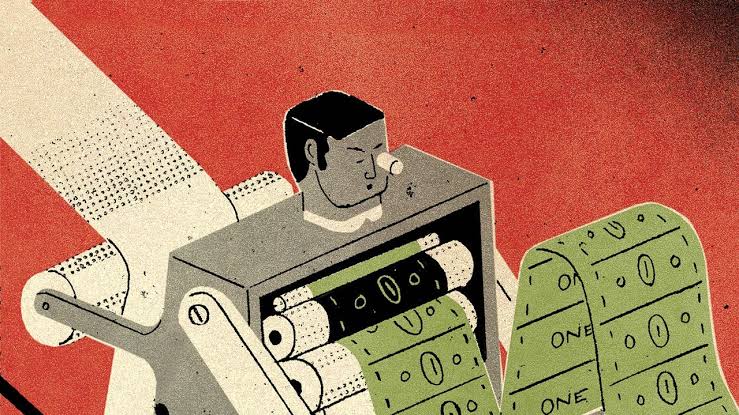With inflation rates recently on a rise in India- this week’s SO Musings will look at the very concept of inflation and how it disproportionately affects the market process and creates an artificial demand. Inflation is in its very nature immoral and unfair, as argued by Henry Hazlitt in his article ‘Inflation vs. Morality’ in the June, 1960 edition of The Indian Libertarian. Hazlitt argues that Government induced inflation is similar to forced redistribution where some are benefactors and others lose.
Produced below is an excerpt from this article which highlights how inflation is a precursor to gambling and corruption:
Inflation never affects everybody simultaneously and equally. It begins at a specific point, with a specific group. When the government puts more money into circulation, it may do so by paying defence contractors, or by increasing subsidies to farmers or social-security benefits to special groups. The incomes of those who receive this money go up lint. They begin to buy at the old prices. But their additional buying forces up prices. Those whose money incomes have not been raised are forced to pay higher prices than before: the purchasing power of their incomes has been reduced. Eventually, through the play of economic forces, their own money-incomes may be increased. But if these incomes increase, are either less or later than the average prices of what they buy, they never fully make up the loss they suffered from the inflation.
Inflation, in brief, involves the redistribution of real incomes. Those who benefit by it do so, and must do so, at the expense of others. The total losses through inflation offset the total gains. This creates class or group divisions. The victims of inflation resent the profiteers from inflation. Even the moderate gainers from inflation envy the bigger gainers.There is general recognition that the new distribution of income and wealth that goes on during an inflation is not the result of merit, effort, or productiveness but of luck ,speculation,or political favouritism. It was in the tremendous German inflation of 1923 that the seeds of Nazism were sown.
An inflation tends to demoralize those who gain by it as well as those who lose by it. They become used to “unearned increment.” They want to hold on to their relative gains. Those who have made money from speculation prefer to continue this way of making money to the former method of working for it. The trend in an inflation is toward less work and production, more speculation and gambling. The profiteers from inflation tend to spend freely, frivolously, and ostentatiously. This increases popular resentment. The incentive for ordinary saving, in the form of savings-bank accounts,insurance, bonds or other fixed income obligations, tends to disappear. The spectacle of quick and easy returns increases temptation to corruption and crime.
The original text can be accessed here.
IndianLiberals.in is an online library of all Indian liberal writings, lectures and other materials in English and other Indian regional languages. The material that has been collected so far contains liberal commentary dating from the early 19th century till the present. The portal helps preserve an often unknown but very rich Indian liberal tradition and explain the relevance of the writings in today’s context.
Read more: Our Borders with China
Post Disclaimer
The opinions expressed in this essay are those of the authors. They do not purport to reflect the opinions or views of CCS.





